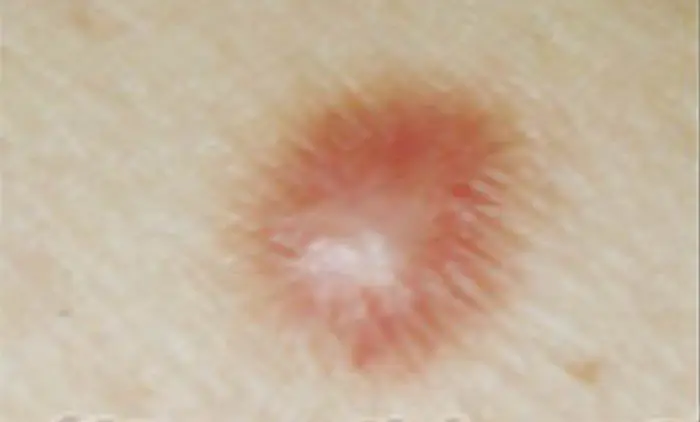Dermatofibroma
Skin Conditions
A dermatofibroma, also known as a benign fibrous histiocytoma, is a common, benign, and scar-like nodule. They typically appear on the legs and have a higher incidence in women. This lesion usually causes no symptoms besides the changes in skin appearance, though they can become itchy or even painful.
It is unknown what exactly causes dermatofibromas to arise – it has been theorized that it is a reaction to a trigger such as an insect bite or minor trauma but dermatofibroma formation without a causative trigger has been reported. Dermatofibromas are similar to scars in that they are composed of irregular collagen.
Dermatofibromas are benign – they are not cancerous – though they can be difficult to distinguish from skin cancers such as basal cell carcinoma. For this reason these lesions may be biopsied to rule out malignancy. One method that can used to differentiate dermatofibromas from other disease processes is to apply lateral pressure to the lesion. A dermatofibroma will display the dimple sign (also known as Fitzpatrick’s sign) – a central depression will appear with lateral pressure.
Treatment is unnecessary but these growths can be cosmetically concerning. Surgical excision is very effective at removing dermatofibroma though it carries a high likelihood of scarring. Other treatment methods have been utilized successfully but complete resolution of the lesion is rare and recurrence is common.
These treatment options include cryotherapy, shave removal, and laser therapy. All new skin lesions should be evaluated by a dermatologist – contact your physician if you are suffering from the symptoms of dermatofibroma.

















